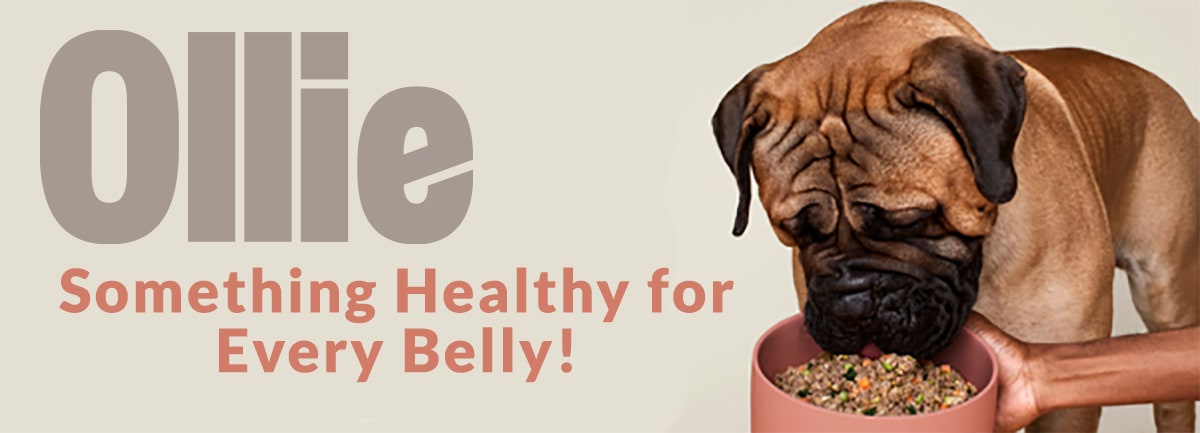Dogs can eat both meat and plants, but they descended from carnivore species that thrive on high-protein diets. You might see high-protein dog food recipes advertised in marketing, or maybe you just want your dog to have a protein boost. Many owners are even trying their hands at homemade and raw diet recipes.
So, no matter your reason for delving into protein-rich ingredients, what are your options? Let’s find out all about protein for your pooch.
Why Do Dogs Need Protein?
Dogs require animal protein to survive and thrive. It is the single most important nutritional component in their diet. Animal proteins, or complete proteins, carry amino acids that develop your dog’s skin, muscles, and joints so their bodies can be fit and fully functional.
Homemade vs Commercial Diets
Commercial diets have been developed to ensure each recipe fits the necessary nutritional profiles for canines. Homemade recipes require individual recipes, ingredient measuring, and supplementation to achieve this.
Commercial Diets
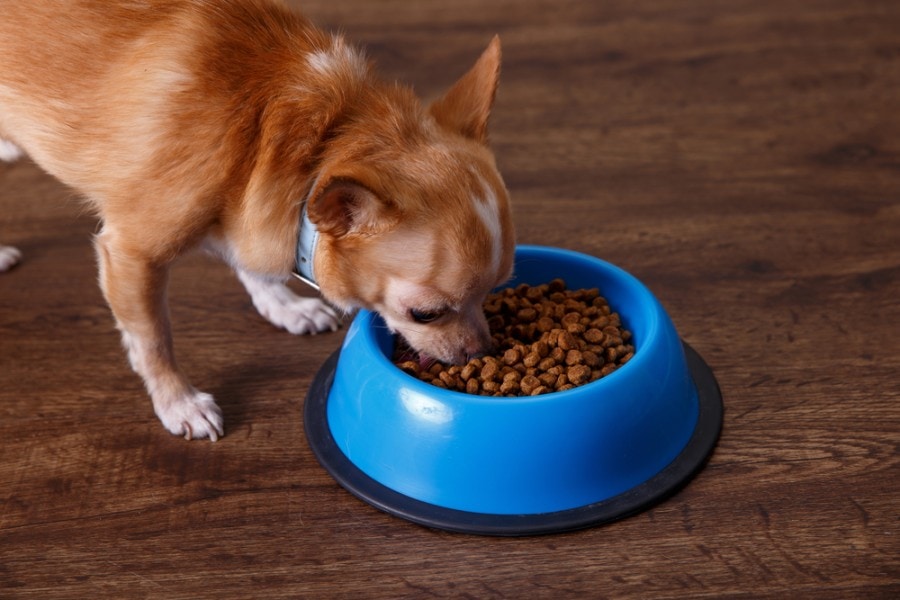
Commercial diets are created by a group of dietary professionals and manufacturers. Each recipe varies slightly depending on brand and target nutrition. Protein content in a commercial recipe should be at least 18% protein for maintenance.
However, some adult dog food recipes for high-energy pooches can go higher than 40%. It’s crucial to deliver appropriate protein levels to your dog based on life stage, age, weight, and activity level.
Click Here to Save 50% with Ollie at Ollie Fresh Dog Food
Homemade Recipes
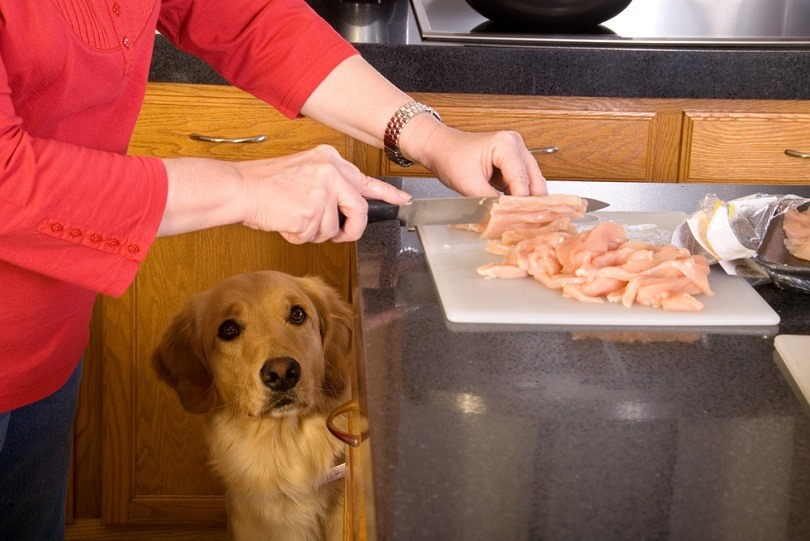
There is so much control with homemade diets. You know exactly what your dog is putting in its mouth without having to worry about ingredients that you can’t pronounce. And regardless of what a bag says, you know just how much protein they have in their dish, too.
One crucial aspect of homemade diets is that you must check with your veterinarian. If you miss even one key component, you can throw off balance in the recipe, meaning your dog isn’t getting the correct nutrients.
Incorrect measurements can lead to malnutrition or overnutrition.
The 6 Best Protein Sources for Dogs
If you’re looking for protein supplements to add to your dog’s diet, you want to know what all your options are. If you’re taking your hand at recipe creation, knowing the most beneficial sources helps produce a well-balanced diet with the approval of your vet.
Here are some excellent protein sources and what they do for your pooch’s health.
1. Eggs

According to the American Kennel Club, eggs are a terrific protein source that is safe and healthy for your dogs. Eggs don’t have the required nutritional content to be an everyday meal, but they make a great topper or standalone snack your pooch will love.
- Chicken eggs
- Ducks eggs
- Quail eggs
Eggs are packed full of valuable nutrients that improve several aspects of canine health, including 6 grams of protein per egg. Some vitamins and minerals include:
- Omega fatty acids—these fatty acids improve skin, coat, and nails.
- Riboflavin—this vitamin aids in the conversion of nutrients into fuel, increasing energy.
- Folate—this vitamin increases red blood cell production.
- Iron—iron is needed for hemoglobin synthesis.
- Selenium—this mineral is essential for thyroid function and DNA reproduction.
- Vitamins B12—this vitamin protects nerves and cells.
- Vitamin A—this vitamin aids in immunity and vision health.
We should note that while eggs can be very beneficial to many canines, some might develop sensitivities to it. Also, you should never offer unpasteurized raw eggs to your dog, as they can still carry Salmonella.
2. Fish
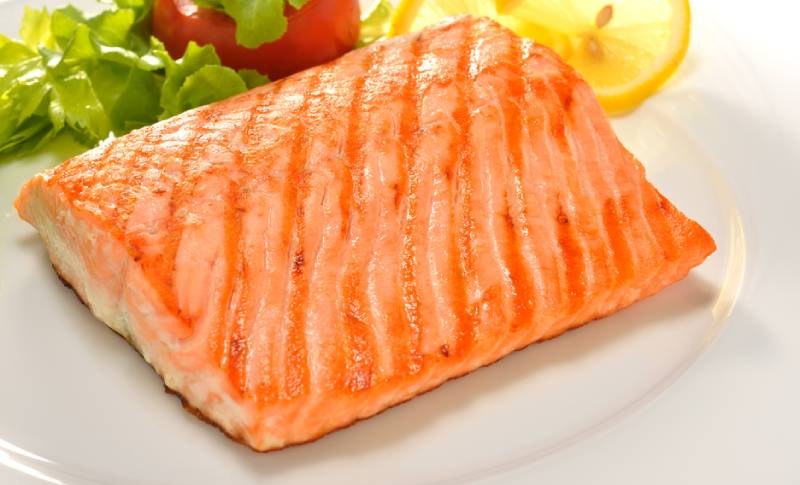
Fish is a wholesome protein to add to your dog’s diet anytime. Certain species of fish are high in protein but low in fat, so these can be perfect protein-booster options for dogs that need a moderate-calorie diet.
- Flounder
- Whitefish
- Salmon
- Cod
- Bass
Fish is packed with powerful nutrients that improve overall health—not just for the sake of protein. Some important nutrients in fish include:
- Phosphorus—helps the body develop strong bones and a healthy metabolism.
- Omega-3 fatty acid—aids in healthy coat, skin, and joints.
- Iron—is used to synthesize hemoglobin in the body.
- Zinc—aids in immune system function and metabolism.
- Iodine—required for optimal thyroid function.
Some dogs might have an allergy to fish, so if they have any adverse reactions—stop serving it all together. Your vet can check to verify a fish allergy. Also, fish should never be fed raw to a dog.
3. Poultry
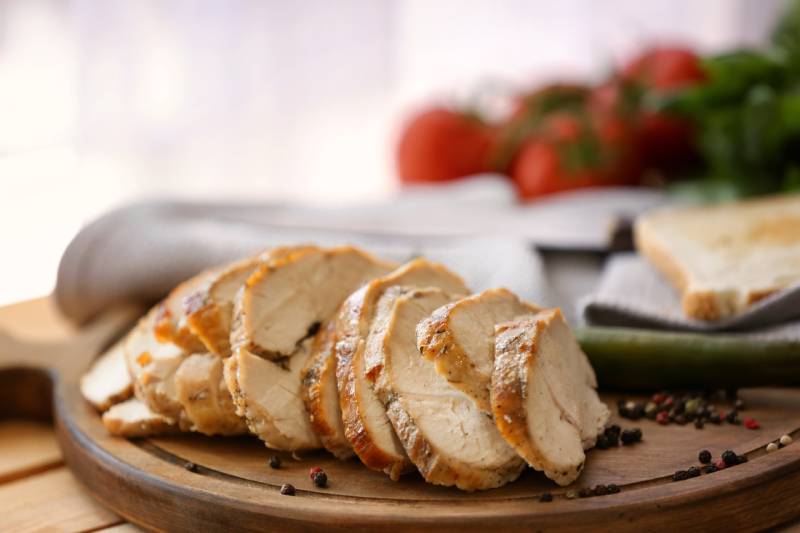
You can also steam or cook several poultry selections for your dog. Poultry offers a lean, white meat option that is packed with high quantities of protein.
- Duck
- Chicken
- Turkey
Poultry like chicken and turkey are excellent meat sources for your dogs. It has less fat content than beef and other red meat, so it’s a great option for dogs who require weight management. Some goodies in poultry include:
- Phosphorus—works together with calcium to help preserve the integrity of bones and teeth.
- Potassium—aids in the function of the heart, nerves, and muscles.
- Pantothenic acid—helps your dog’s body break down fats.
- Choline—is a precursor of nervous system chemicals.
- Iron—is necessary for hemoglobin production.
Some dogs might be very sensitive to chicken, turkey, or duck protein, so make sure to watch for any allergic responses.
4. Venison
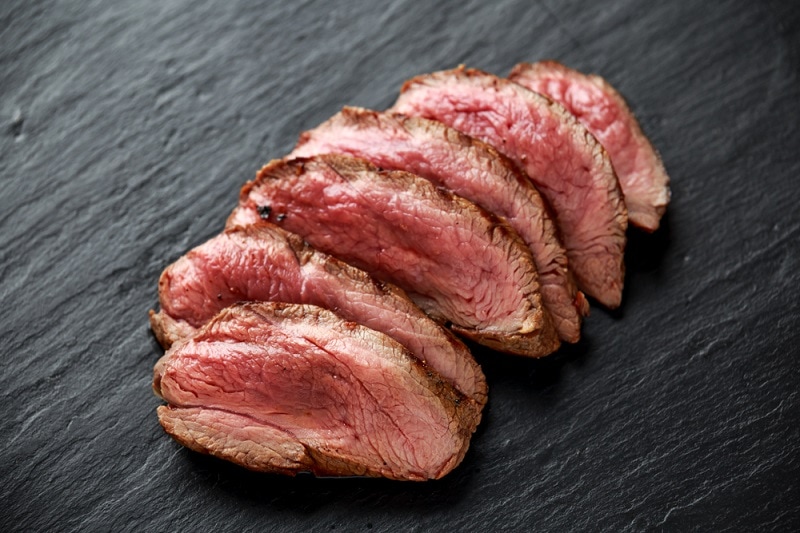
If you’re a hunter stocked with fresh game, you might be able to offer your dog some fresh venison. It is a hormone-free, excellent selection for at-home meals and snacks.
- Deer
- Elk
Venison is a lean, healthy red meat that can nourish your dog’s system. It might be hard to come by if you don’t hunt yourself, but it is a healthy alternative to some fatty red meats.
- Iron—is used to synthesize hemoglobin in the body.
- Phosphorous—works with calcium to maintain bones and muscles.
- Potassium—aids in nerve and muscle function.
- Niacin—helps with digestive functions and overall skin health.
It is considered a novel protein, meaning your dog likely hasn’t had an introduction yet. This factor makes it a terrific option for dogs who have allergies to common protein sources.
5. Red Meat
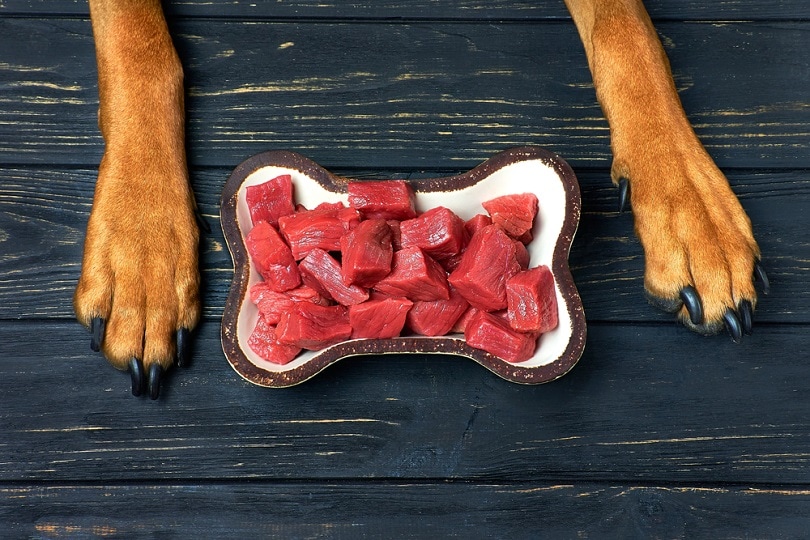
Most red meats are valuable and nutritious for your pooch. However, it’s best not to use these menu options as main protein sources due to their higher fat content. Leaner cuts might be more suitable.
- Lamb or mutton
- Beef
- Bison
Red meat is packed with solid protein, creating a firm foundation for muscle growth and joint support. Some excellent nutritional aspects of red meat include:
- Iron—the precursor of hemoglobin.
- Phosphorus—helps the body develop strong bones and a healthy metabolism.
- Potassium—aids in nerve and muscle function.
- Selenium—nourishes areas related to thyroid function.
- Zinc—aids in metabolism and immunity.
Red meat can have incredible health benefits, especially when included in a complete and balanced diet. Novel proteins like bison are excellent protein sources for pets with allergies compared to other, more common protein sources.
6. Plant-Based Proteins
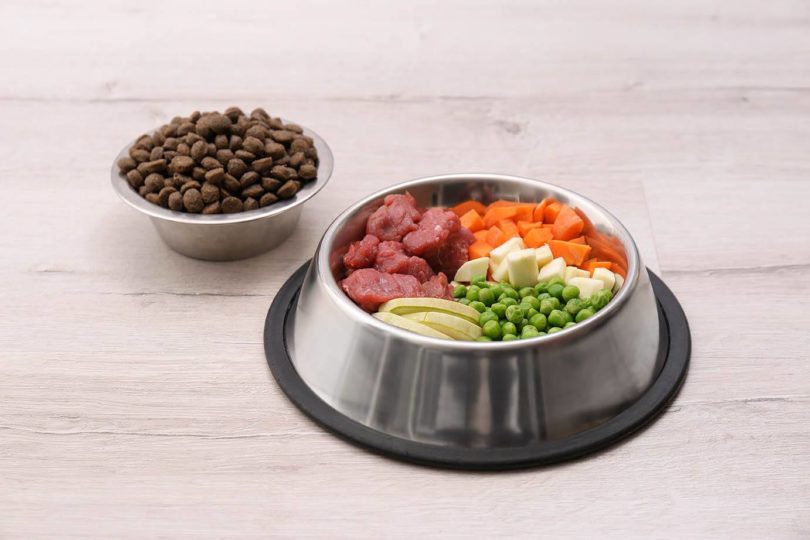
In addition to meat-based protein selections, you can sporadically offer plant-based proteins. Dogs cannot thrive on plant-based proteins exclusively, as they are not complete proteins that include all the essential amino acids that dogs need to consume through their diet. Additionally, there is an ongoing investigation on whether the inclusion of large quantities of legumes in grain-free commercial dog food diets is responsible for reports of an increase in dilated cardiomyopathy cases in dogs.
- Peas
- Lentils
- Chickpeas
Since plant-based proteins are currently under investigation, we recommend only feeding them to your dog occasionally, in moderation.
- Fiber—aids healthy digestion.
Some plant-based proteins can trigger food allergies and sensitivities in some dogs. Check with your vet beforehand.
Vegan or Vegetarian Dogs: What Does It Mean for Health?
If you’re an environmentally conscious person who consumes or uses no animal products yourself, you might want to give your dog a vegan diet, too. But is this really a positive thing to do for their overall health? It’s a huge decision to make for owners in your shoes.
Studies claim that although recipes can be created that are vegetarian or vegan, this is certainly not the most appropriate diet for your dog. You have to be incredibly careful when you offer diets devoid of animal protein.
Even though you might have hang-ups or reservations about buying animal products, allowing your dog to have their natural diet is likely best. However, if your moral conscience cannot allow that, you should speak with your vet about the best vegetarian or vegan foods for canines.
If you need to speak with a vet but can’t get to one, head over to PangoVet. It’s an online service where you can talk to a vet online and get the personalized advice you need for your pet — all at an affordable price!
Final Thoughts
Protein is a highly beneficial and necessary ingredient that makes up a majority of your dog’s diet. It is the base of commercial and homemade dog foods alike.
Now, you know just what kinds of protein sources you can serve your pooch. Every animal or plant-based protein has nutrient value to offer. If you are making your homemade recipes, run your recipe by your vet to ensure optimal nutrition.
Featured Image Credit: Chendongshan, Shutterstock




